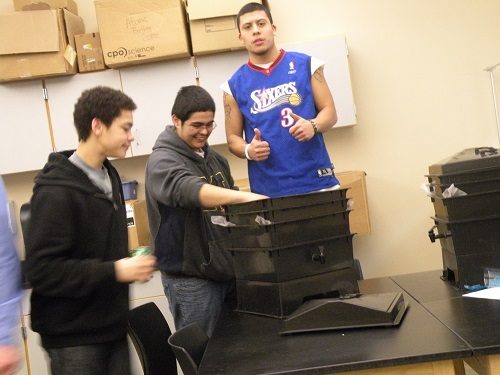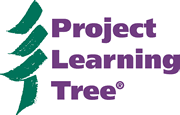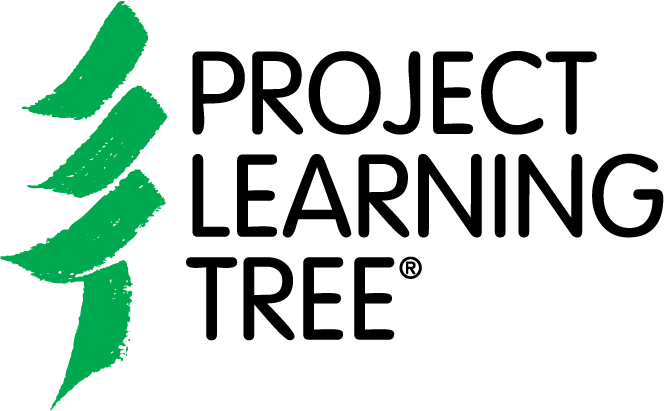
Not many schools can claim that they infuse their entire curriculum with the concepts and investigations of Project Learning Tree and the PLT GreenSchools program. But that’s exactly the case with Renaissance High School, an alternative school serving students in grades 9 through 12 in Clarkston, Michigan. The school’s entire academic program is infused with green, with the goal of making its students “responsible citizens, stewards of the Earth, and knowledgeable about the environmental challenges they will face as tomorrow’s leaders,” according to Principal Billie Pambid.
Not only is Renaissance the first high school in Michigan to be designated a Certified PLT GreenSchool, but the school also earned a prestigious national Green Ribbon School designation from the U.S. Department of Education.
“Having worked for years at various schools in either Principal or curriculum roles, I was acquainted with PLT, and loved everything about it,” says Kathy Yeloushan, a retired educator who returned to school as a curriculum consultant at Renaissance. “When I came here, I decided to get involved again with PLT, and learned about the GreenSchools program. It seemed like a perfect fit for Renaissance. Billie’s vision for the school was to infuse sustainability throughout the curriculum. PLT GreenSchools gave us a way to do that.”
All of the math and science teachers at Renaissance have been trained in PLT, but incorporating environmental sustainability into the curriculum doesn’t stop with math and science courses. “We have incorporated the environment into who we are and what we believe in as a whole school,” says Principal Pambid.
School Site Investigation
Using data from their investigations, students solicited help from district grounds staff and members of the community to develop a “bioswale” of salt- and drought-tolerant native plants to reduce the amount of runoff from pavement into the stormwater drainage system. The bioswale area became an outdoor classroom to study native flora and fauna, measure project outcomes, and resolve unexpected problems.
 The picnic tables for the outdoor learning lab were designed by the school’s geometry students, who also conducted research on ergonomic design to assure that the tables would be comfortable for the students who used them. A PLT GreenWorks! grant provided funding for the picnic table materials.
The picnic tables for the outdoor learning lab were designed by the school’s geometry students, who also conducted research on ergonomic design to assure that the tables would be comfortable for the students who used them. A PLT GreenWorks! grant provided funding for the picnic table materials.
Renaissance students grow organic tomatoes, peppers, and lettuce for consumption in the school’s cafeteria and collect data on their gardens’ productivity and plant health. They have cultivated a working worm farm to enrich soil used to enrich plants around the school building. Produce is grown in both traditional soil-based gardens and vertical hydroponic gardens, and statistics students collected data to compare the productivity of the two growing methods to test the hypothesis that hydroponic gardens are more productive. A Grand Rapids company, Venntis, turned to Renaissance students to collect data on plants grown with an experimental LED light the company has developed for hydroponic greenhouses.
Energy Investigation
As a result of Renaissance students’ work, the school’s greenhouse gas emissions have been reduced by 51 percent, and non-transportation energy use has been cut in half. Energy-saving activities earned the school EPA EnergyStar awards every year.
Ten Renaissance science teachers and students have received training on use and development of solar panels. The school’s conceptual physics students are developing a solar charging station to offset energy used by indoor growing lights used to raise lettuce and other vegetables for the school cafeteria.
Water Investigation
Located near the Great Lakes, which supply 20 percent of the world’s fresh water, water issues are a centerpiece of the Renaissance HS curriculum. The school’s faculty has designed a semester where every class is taught through the green lens and the theme of water. For example, civics class are taught by examining laws, conflicts, and government surrounding the use and regulation of water. English students write research papers based on water-themed lessons in other classes. Students are encouraged to investigate water-related jobs and gain information to make informed decisions regarding water in the future.
Waste and Recycling Investigation
Renaissance has an ongoing recycling program for paper, plastic, printer cartridges, aluminum, glass, and cardboard. With a GreenWorks! grant from Project Learning Tree, the school purchased visible, easy-to-use recycling bins for students and community. The recycling program is carried out by students from a post-high-school program that provides opportunities for young people with special needs. “We share a building with this special ed program, and they take care of collecting all the things we recycle,” says Pambid.
Teacher Tips

Tips from Principal Billie Pambid:
“If our students are going to be the stewards of saving our planet, they need to know about all the issues,” Pambid notes.
- Give it time. This kind of program can’t happen in a year.
- You have to have a dedicated person to coordinate a program like this. That’s what Kathy Yeloushan has done for us.
- Go slow. Start with one teacher partnership and expand from there, building on what you’ve learned.
- Involve the kids. Let them decide what they want to learn.
- Don’t give up.
Tips from curriculum developer Kathy Yeloushan:
To make the curriculum locally relevant, Renaissance has built a number of courses around the challenges facing the Great Lakes. “Living in Michigan we’re surrounded by 20 percent of the world’s fresh water,” notes curriculum specialist Yeloushan. “I want our citizens to care about it, and protect it, and to use it for the benefit of everyone in the state. So we use a team teaching approach to infuse water into the whole curriculum.”
An example is an ecology course that focuses on the 10 major threats affecting Lake Michigan, including invasive species. As a final project, students are required to develop a children’s book based on one invasive species. The book must explain the problem and its causes, possible future effects of the problem, what is being done to address the issue, the laws that apply, and what individuals can do to help.
- Rethink how you teach and be willing to tell your students that you don’t know the answer. Work with your students to discover what you don’t know.
- Understand that kids are very engaged. When it’s a good lesson, they’re willing to fail, and try again.
- Understand that failure is not a big deal. It’s just a learning process.


